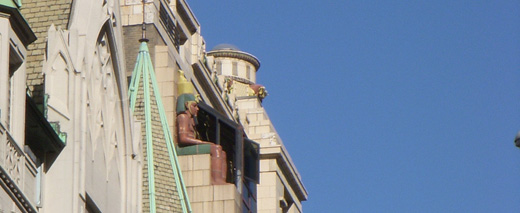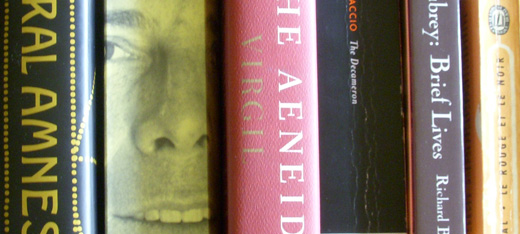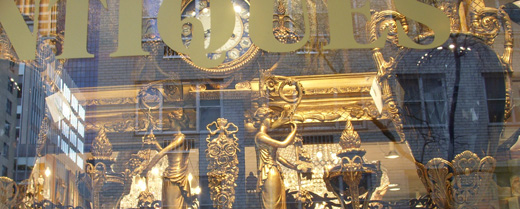
Tom Meglioranza has tagged me with the 123 Meme. Here’s how it works: you open the book nearest to hand, turn to page 123, find the fifth sentence, and quote it, together with the next two sentences, on your Web log. Then you tag five blogging friends and see what they come up with.
As I had just stowed my Morning Read library, there was no danger of French, Latin, or Italian making an unwelcome intrusion. The book nearest to hand was Harold McGee’s On Food And Cooking: The Science and Lore of the Kitchen (Second Edition; Scribner, 2004). It’s always nearby, because Kathleen and I often dip into it at the dinner table to answer a question or settle an argument. (This makes, if not for Slow Food, at least for Long Dinners.) Here are the fifth, sixth and seventh sentences on page 123:
In the 1870s a wider distrubution of fresh meat, especially beef, was made possible by several advances, including the growth of the cattle industry in the West, the introduction of cattle cars on the railroads, and the development of the refrigerated railroad car by Gustavus Swift and Philip Armour.
Today, with one fifteenth of the world’s population, the United States eats one third of the world’s meat. Meat consumption on this scale is possible only in wealthy societies like our own, because animal flesh remains a much less efficient source of nourishment than plant protein.
That can’t be news to regular Daily Blague readers; nor, perhaps, is the synchronicity startling: I had just finished reading Bee Wilson’s “The Last Bite,” in the current issue of The New Yorker. I’ll have more to say about that on Friday. For now, I’ll just point out that it isn’t wealth alone that permits our massive meat consumption, but a corporate organization that churns out hecatombs of the substandard foodstuffs that critic Michael Pollan famously dismisses as “foodish.” So, while we’re eating a lot of beef, the bulk of it is junk that we’d be better off avoiding. The problem, of course, is that we eat with our eyes and ears, where the advertisers get us.
I hereby tag Édouard, George, Migs, JR, and Tony. (I’d tag Mig as well, but I suspect that he has already been through this one.)















